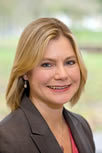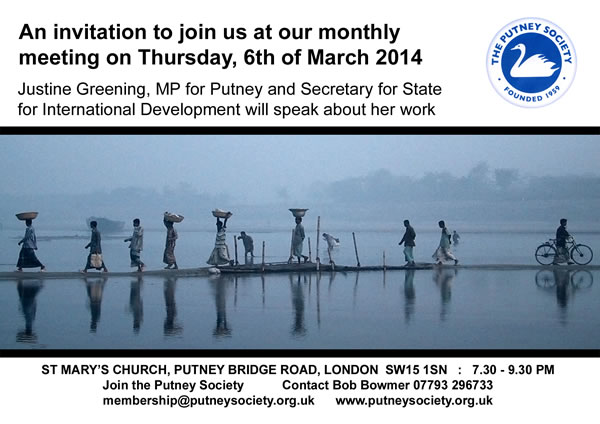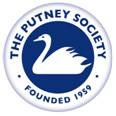Justine Greening MP Answers Questions On International Development
Questions posed at the cut short Putney Society meeting last year when she flew to the Philippines
 At the meeting in November Justine give a brief talk, which was cut short as she had to leave for the airport to fly to the Philippines. Questions were asked after she'd left, and the Putney Society submitted them to her office:
At the meeting in November Justine give a brief talk, which was cut short as she had to leave for the airport to fly to the Philippines. Questions were asked after she'd left, and the Putney Society submitted them to her office:
1 - In the Philippines, for example, the homes devastated are often those of the poor, and are not sturdily constructed. Does aid given to help re-build homes help them to build more solid buildings? Or is that something that can’t be specified?
Yes, we and other donors are very aware that poorly built houses cause increased death, injury and homelessness when disasters strike. That is why we always aim to “build back better”, to provide emergency shelter in the immediate aftermath of disaster but also to help with longer term improved shelter so that dwellings and other buildings are better able to withstand future shocks.
2 - With emergencies as different as Syria and the Philippines, is Aid managed differently? How is the process adapted for the very different circumstances on the ground?
Each emergency is unique and demands a unique response. DFID, in common with other donors, takes great pains to tailor its response to meet the particular needs of each crisis. But that unique response will always be able to draw on DFID’s standard strengths – our funding, our stockpile of relief supplies, our expertise (both at HQ and in the field) and our networks across Government, with civil society and internationally.
3 - In the Philippines, for example, what plans are there to help children return to some sort of normal life? Are there education plans? Plans for special play to encourage them to overcome the traumas they’ve been through? What happens to the orphans?
Children should be given top priority. All our humanitarian funding benefits families; but frequently we will specifically fund relief agencies such as UNICEF and Save the Children which concentrate especially on children and their needs. In Tacloban in the Philippines last month I visited, with Save the Children and the Philippines Secretary for Social Welfare, a “child friendly” scheme we are supporting there.
4 - One of the biggest receivers of Aid is Pakistan, where the attitudes towards women in Pakistani culture make the fight for educational equality for girls very difficult, particularly in rural areas. How is that addressed? The same question was asked about Bangladesh.
Pakistan: The UK is committed to putting girls and women at the heart of our development assistance and all DFID's education programmes have a focus on girls and young women. Education is the single most important factor that can transform Pakistan's future and therefore a major priority for the UK’s development programme. In Pakistan our education programmes operate in both urban and rural environments, with a focus on those most in need. By 2015, UK development assistance will benefit 4 million children in education in Pakistan, 2 million of them girls, and provide stipends to more than 400,000 girls to enable them to go to school. The UK is also supporting the provincial governments of Punjab and Khyber-Pakhtunkhwa to increase girls’ attendance at school and improve school facilities, including creating barrier walls and upgrading classrooms and bathroom facilities to ensure that parents feel able to send their daughters to school.
Bangladesh: Significant progress has been made in empowering women and girls in Bangladesh. As many girls as boys now attend primary school and rapid growth in the garment sector has created large numbers of jobs in an industry where 90% of the workforce are women. However, significant challenges remain: 37% of women cannot read, 24% are undernourished and almost 50% give birth to their first child before reaching the age of 18. Levels of violence against women and girls are amongst the highest in the world. Attitudes towards education and practices such as child marriage are a significant barrier to further progress.
Supporting quality education for girls as a foundation for economic growth and development is a key priority for DFID. Between 2011 and 2015, we will support 500,000 children to complete primary school in Bangladesh, of whom almost 60% will be girls. Girls from the poorest communities are supported to attend school through our social protection programmes and stipends at primary and secondary levels. We are also working to change attitudes towards girls’ education. For example, the Under-Privileged Children’s Education Programme and Campaign for Popular Education work with civil society organisations to raise awareness of the importance of girls’ education, violence against women and girls and the risks of child marriage. Further information on these programmes and our wider education work in Bangladesh can be found on the DFID development tracker website.
5 - When Aid is given to a particular country how much goes to NGO’s and how much to government? Medecin sans Frontieres, for example, refuses to accept government donations in order to remain strictly neutral. Are there other organizations that do the same?
None of our humanitarian aid goes to governments. It is all spent through the UN relief agencies, the Red Cross and NGOs. We do work with governments to rebuild their capacity and help them bring aid to their own people. For example, after the earthquake in Haiti in 2010 we made a senior humanitarian adviser available for the Haitian Prime Minister.
6 - How can it be justified to give India some £280 million in aid, when they’ve spent about £50 million on a mission to Mars?
In recognition of India’s changing place in the world, the Secretary of State announced in a statement to Parliament in November 2012 that we have agreed to move to a new type of development relationship. From November 2012 no new financial grants have been approved. Existing grants will all wind down by or before 2015. After 2015, our partnership will focus on sharing skills and expertise; making investments in private sector projects which will help the poorest people whilst generating a return; and strengthening our partnership with India on global development issues like food security and climate change.
7 - How much money did the Government give in 2012 to the following countries: Gabon, Equatorial Guinea, Uganda, Rwanda and Nigeria?
The table below shows how much bilateral Official Development Assistance from the UK to the five countries:
COUNTRY |
£THOUSANDS |
Gabon
|
0 |
Equatorial Guinea
|
0 |
Uganda
|
94161 |
Rwanda
|
28 242 |
Nigeria
|
197 313 |
The UK Statistics for International Development (SID) 2013 publication, is publically available on the DFID website, and provides details on how we spend our aid funds. If you would like to read more about the UK Government’s international development work, this is available on the DFID website www.gov.uk/dfid
8 - How many countries donated to the Philippines, and how much did each country donate?
International Contributions (not comprehensive – pledges rather than commitments) |
|
Country |
Details |
Asia Development Bank |
£14.5 million in grants to the Philippines to address immediate needs + £314 million emergency loan to help reconstruct communities (approved on 06 December) |
Australia |
£23.5m – Bilateral contributions (In-kinds and medical support) + UN/NGOs. |
Canada |
£11.6 million (NGOs, IFRC, ICRC, +UN) |
Central Emergency Response Fund (CERF) |
£15.5m |
Denmark |
£4.5m (funding to UNICEF, IFRC, WFP + In-kinds: a coordination centre and a base camp + emergency team) |
European Commission (ECHO) |
£6.2 million + £8.8m for rehabilitation work |
Germany |
£6.4m for UN/NGOs/RC + NFIs, medical/technical teams |
Gulf states |
UAE: £6.7m, Saudi Arabia: £6.2m, Kuwait: £6.2m, Qatar Red Cross: £5,2m |
Japan |
£32.4m total: Emergency Grant Aid: £18.6m; Emergency Relief Goods: £372,000; Assistance through Japanese NGOs (JPF): £930,000; Japan Fund for Poverty Reduction (ADB): £12.5m + 1,000 army personnel. |
Netherlands |
£6.3m: support to UN agencies/NGOs, IFRC + military flights. |
Norway |
£14.7million: UN +NGOs |
Private (individuals &organisations) |
£60.2m |
US |
£37.5m + carrier group (90 marines and sailors): logistics, 55 tonnes of food aid (Food for Peace Programme), support to UN agencies and NGO. |
South Korea |
£3.1 million |
Sweden |
£8.9m total (secondment to UN agencies, support to OCHA with 2 IHP base camps and 2 OSOCC modules with personnel + funding to NGOs and ICRC appeal) |
UK |
£62 million |
World Bank |
Emergency loan of US$980 million to support reconstruction (original $500m + $480m announced 23/11/13) |
9 - The UK is, it appears, very generous. Does the EU have an Aid Program? And if it does, is there duplication from us, doubling our cost?
The European Commission’s Directorate General for Humanitarian Aid and Civil Protection (DG ECHO) provides humanitarian assistance and coordinates the European Union’s civil protection mechanism. The budget for DG ECHO comes from the overall EU budget. The EU also has a role in ensuring humanitarian policy coherence among EU Member States. The UK, DG ECHO and other EU Member States, work closely together in order to ensure that our efforts are well-aligned and to avoid duplication. DG ECHO is an important partner in many humanitarian responses, including in the Philippines, and by working together we can improve the reach and quality of assistance that we are able to offer.
10 - There doesn’t appear to be much recognition in the recipient countries of how much Aid comes from the UK. Could more be done about that?
Yes. We make sure that DFID funded partners acknowledge funding from the UK government in both their corporate communications and when delivering development and humanitarian assistance overseas. Most of the supplies provided in the Philippines have the DFID logo and the UK flag.
DFID-funded programmes are branded with the UK aid logo, so that beneficiaries, officials and local media know that they are funded by the UK. We introduced the Union Flag as part of the logo in 2012, as it is widely recognised overseas and the language used clearly links our development support to the UK taxpayer. The international media presence during an emergency often means that UK support may be recognised by international as well as local news channels and authorities.
In some situations, using UK aid branding may increase security risks to staff, beneficiaries, so very occasionally we may decide not to brand.
11 - Does going to the various countries in need of Aid, such as the Philippines actually make a difference? Aren’t there enough people on the ground to report back?
We have excellent staff on the ground, managing our aid programmes and reporting back. But ministerial visits are important. We are responsible and accountable to the British public, and to Parliament and need to see and scrutinise the work of my Department. On my visit to the Philippines, as elsewhere, I was able to question and encourage the UN, the Philippines Government and NGOs and make sure the international response was properly co-ordinated.
12 - How much gets through to people in need and not corrupt officials?
The Department for International Development does not tolerate corruption. DFID has rigorous systems and processes to ensure that its aid reaches and delivers results for its international recipients. A business case is mandatory for all new funding proposals. This sets out the rationale for the programme and includes a through economic appraisal.
Once a programme is underway a formal review is required annually and at completion which assesses and records whether funds have been used for their intended purposes and what results have been delivered
All organisations which receive funding from the DFID are required to provide evidence about the use of funds, including providing audited financial statements, and this is monitored as part of our monitoring of programme performance and delivery. Appropriate action must be taken for any risks or issues identified, and this action is monitored.
DFID also carry out Fiduciary Risk Assessments which include an explicit assessment of corruption risk. These are subject to independent scrutiny. The DFID provides financial aid, only where there is a credible programme to address weaknesses in public financial management.
In areas of high risk, particularly in relation to work in fragile and conflict affected areas, the Department is making increased use of monitoring agents, independent audits, and other additional safeguards. We are audited both internally and by the National Audit Office.
The coalition government also established the Independent Commission for Aid Impact (ICAI) to provide further independent assurance that UK aid is being spent properly and is achieving the desired impacts. ICAI reports directly to the UK Parliament. ICAI reports on audits undertaken are publically available through their website;
Want to find out more?
You can catch Justine at the re-arranged meeting:
February 14, 2014
Related links
|
